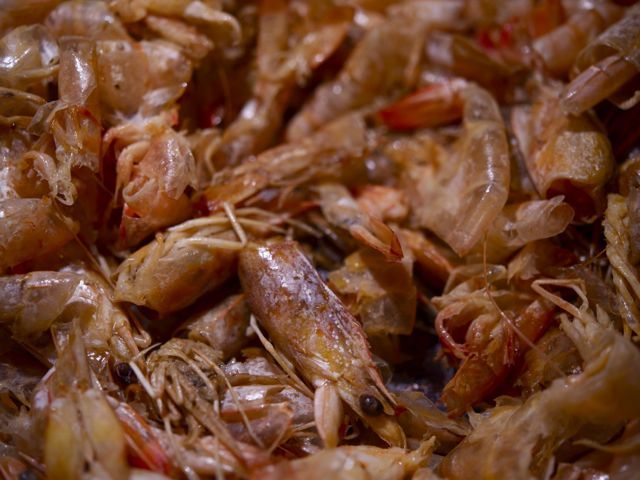A team of Egyptian researchers say they have made a breakthrough in the development of a biodegradable alternative to plastic, which has become an ubiquitous part of everyday life for most of mankind.
Researchers at Egypt’s Nile University are developing a way to turn dried shrimp shells into thin films of biodegradable plastic for eco-friendly grocery bags and packaging, according to Reuters.
The researchers say chitosan, a material found in the shells of many crustaceans, can be used to create an eco-friendly alternative to plastic.
To produce the biodegradable plastic, researchers collect or buy unwanted shrimp shells from restaurants, supermarkets, and local fishermen at cheap prices.

Shrimp shells. Photo credit: Glutton for Life
The shells are then cleaned, chemically treated, ground, and dissolved into a solution that dries into thin films of plastic, a technique the team says has the potential for large-scale industrial production.
The head of the research team, Professor Irene Samy, says the project has the potential to improve the overall quality of the physical environment.
“If commercialized, this could really help us decrease our waste…and it could help us improve our food exports because the plastic has antimicrobial and antibacterial properties,” Samy said.
Samy first began experimenting with the idea of producing biodegradable plastic while doing her post-doctoral research in the U.K. The project is a collaboration between researchers at Egypt’s Nile University and a research group from the University of Nottingham in the U.K., where she studied.
Shrimp shells are sustainable and can replace synthetic materials used in plastics; Samy hopes the shells could cut down the amount of biowaste produced by the Egyptian food industry.
“Egypt imports around 3,500 tons of shrimp, which produce 1,000 tons of shells as waste…. Instead of throwing the shells away, we can make biodegradable plastic bags,” Hani Chbib, one of researchers on the project, added.
The research is only six months into its proposed two-year duration, and the scientists say they are confident that within that period they can develop the material for widespread commercial production.
“We are continuing to work on enhancing its properties, like thermal stability and durability,” Samy said.










